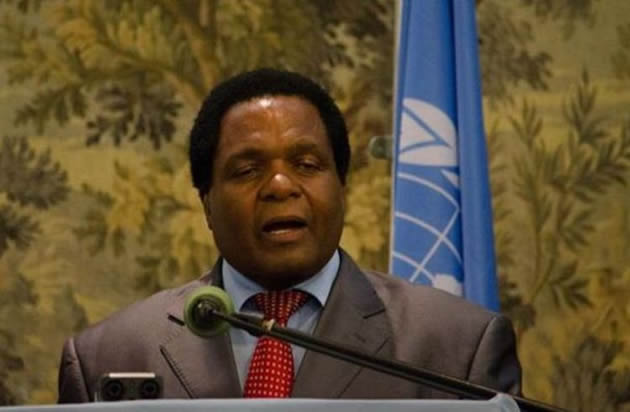Export receipts to rake in $16m

Harare Bureau
ZIMBABWE expects to rake in more than $16 million in export receipts from the $1 billion projects approved by the investment authority in the first half of this year as foreign investors continue to warm up to the country. In the six months to June, the Zimbabwe Investment Authority approved 67 investment projects with a combined value of about $971 million, which is a 43 percent growth on last year’s 76 projects which were valued at $555 million.
About 7,144 jobs are expected to be created if the projects take off as expected.
Presenting a paper before members of the Parliament’s portfolio committee on Foreign Affairs, the Secretary for Economic Planning and Investment Promotion Desire Sibanda said the investment figure reflects a 43 percent increase from the 76 projects valued at $545 million approved in the same period last year.
For the past 10 years Africa has been the second fastest growing continent in the world.
Sibanda said according to the World Investment Report of 2014 Zimbabwe recorded $545 million in Foreign Direct Investment which was a 36 percent increase from the $400 million recorded in 2013.
“While the increase was plausible the problem is that we were coming from low base. If you look around the region, Zambia recorded close to about $5 billion and Mozambique $8 billion which means we’re far down the ladder. But the good thing is that investment is coming up,” said Sibanda.
The areas which registered improvements were agriculture, construction, manufacturing, mining and services, tourism and transport.
Sibanda said about 16 mining projects valued at $156 million were approved in the period under review compared to 26 projects worth $128 million approved last year.
“We’ve about 40 different types of minerals and the Look East Policy has attracted a number of Chinese nationals to invest in the mining industry. This is in line with Africa’s thrust of commodity based industrialisation. We’re exporting about 90 percent of our minerals in raw form yet minerals contribute 60 percent of our exports,” said Sibanda.
The manufacturing sector followed the mining sector receiving the highest number of project proposals with a total of 26 projects valued at $722 million, expected to generate more than 2,200 jobs and exports valued at $31 million.
Zimbabwe has adopted value addition and beneficiation as a key pillar in the economic blueprint, Zim-Asset, which gives the country’s economic trajectory until 2018.
Sibanda said, however, there are some challenges with investing in the country.
“In the past seven months we’ve received over 40 delegations coming to scout for investment. These (investor delegations) have recommended that we should reform our investment climate. The first problem they have raised is the Indigenisation and Economic Empowerment Act provisions, particularly the 51:49 (threshold). They perceive it as a disinvestment, they’re saying it denies the foreign investor a controlling stake in their investment. They would prefer to have the majority shareholding than a minority in their investment projects. But the current Finance Bill has tried to clarify these issues in terms of giving more power to the sector ministry,” said Sibanda.
The other point investors have raised is that it takes a long time to invest in the country.
In 2010 Zimbabwe set up a One-Stop-Shop at the Zimbabwe Investment Authority to improve the speed at which investment is dealt with.
“The problem in the One-Stop-Shop is that there was no legal requirement for the ministries that deal with investments to be housed there. It’s something that we’re hoping to improve,” he said.
Zimbabwe is seized with improving the Doing Business Environment in the country and has already ensured a cut in cost drivers.
Sibanda said the country is playing catch up with other regional countries some of which are among the 11 fastest growing economies in the world.












Comments